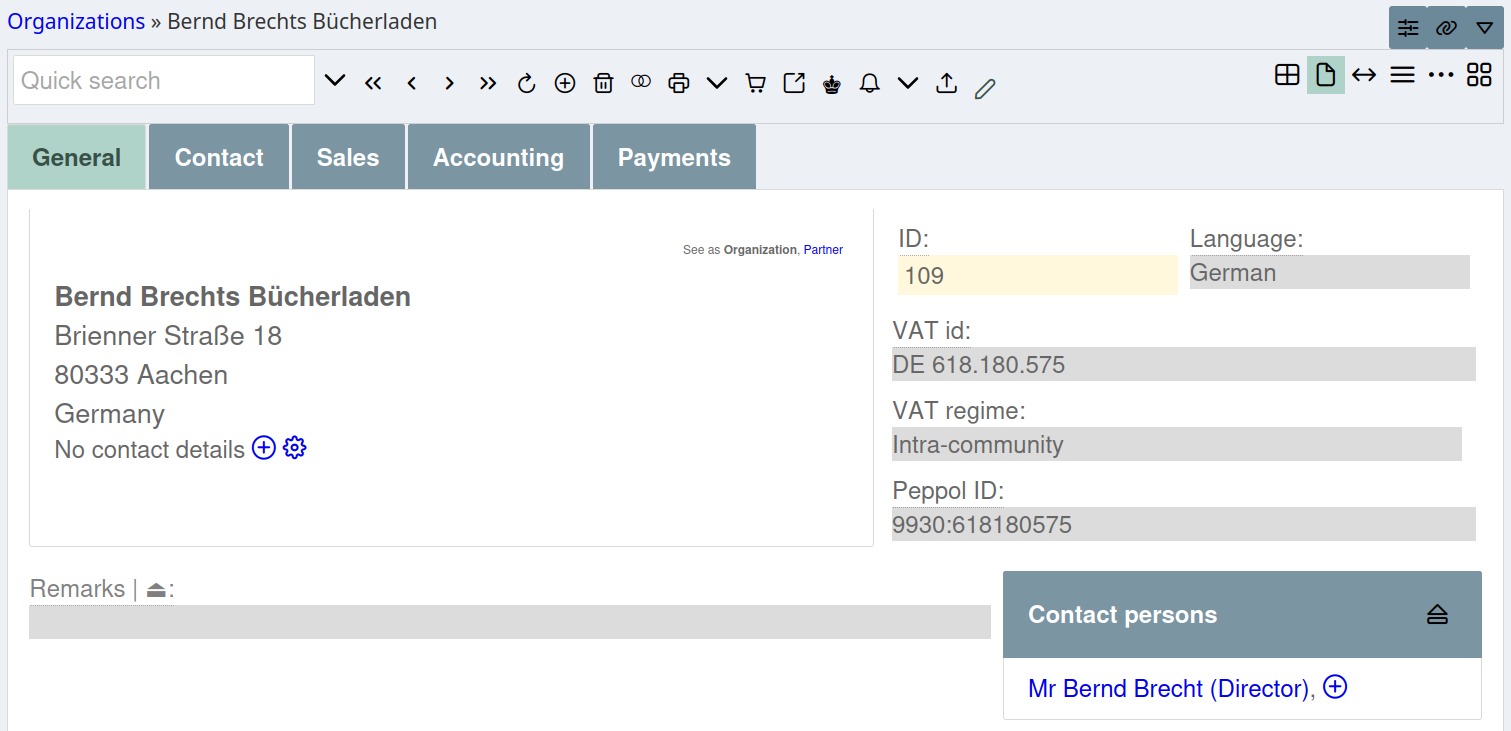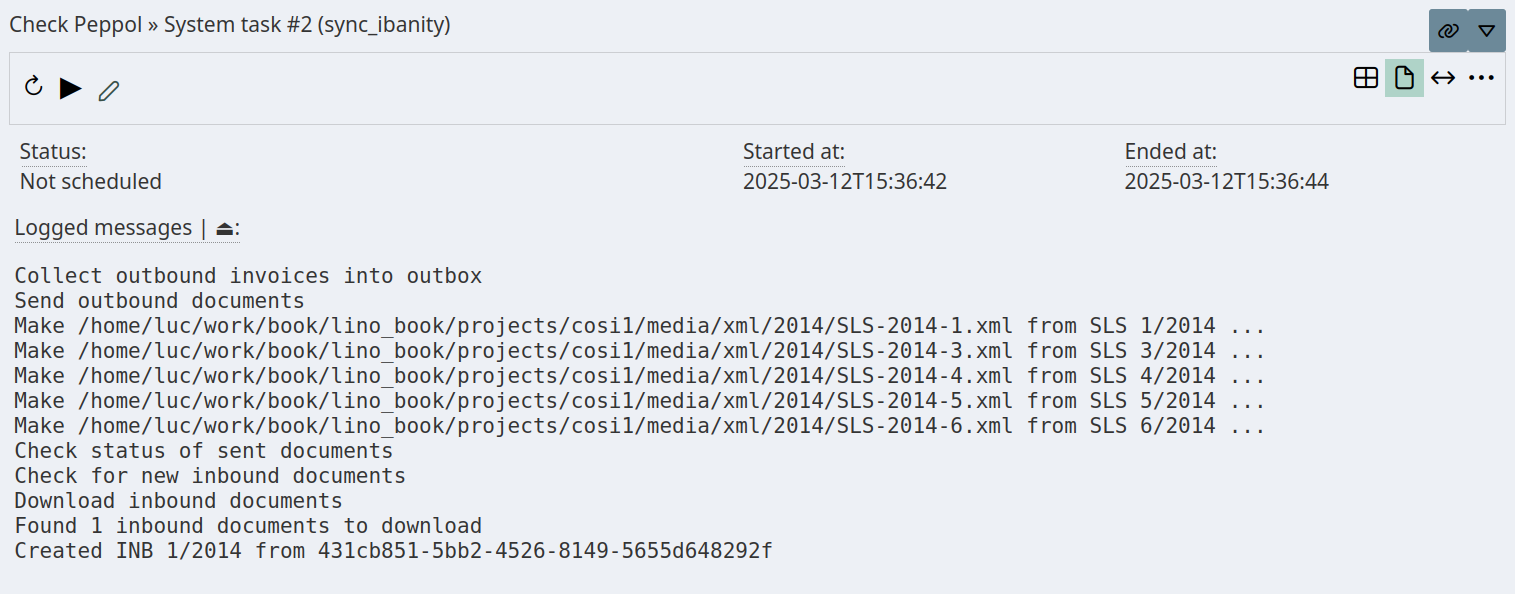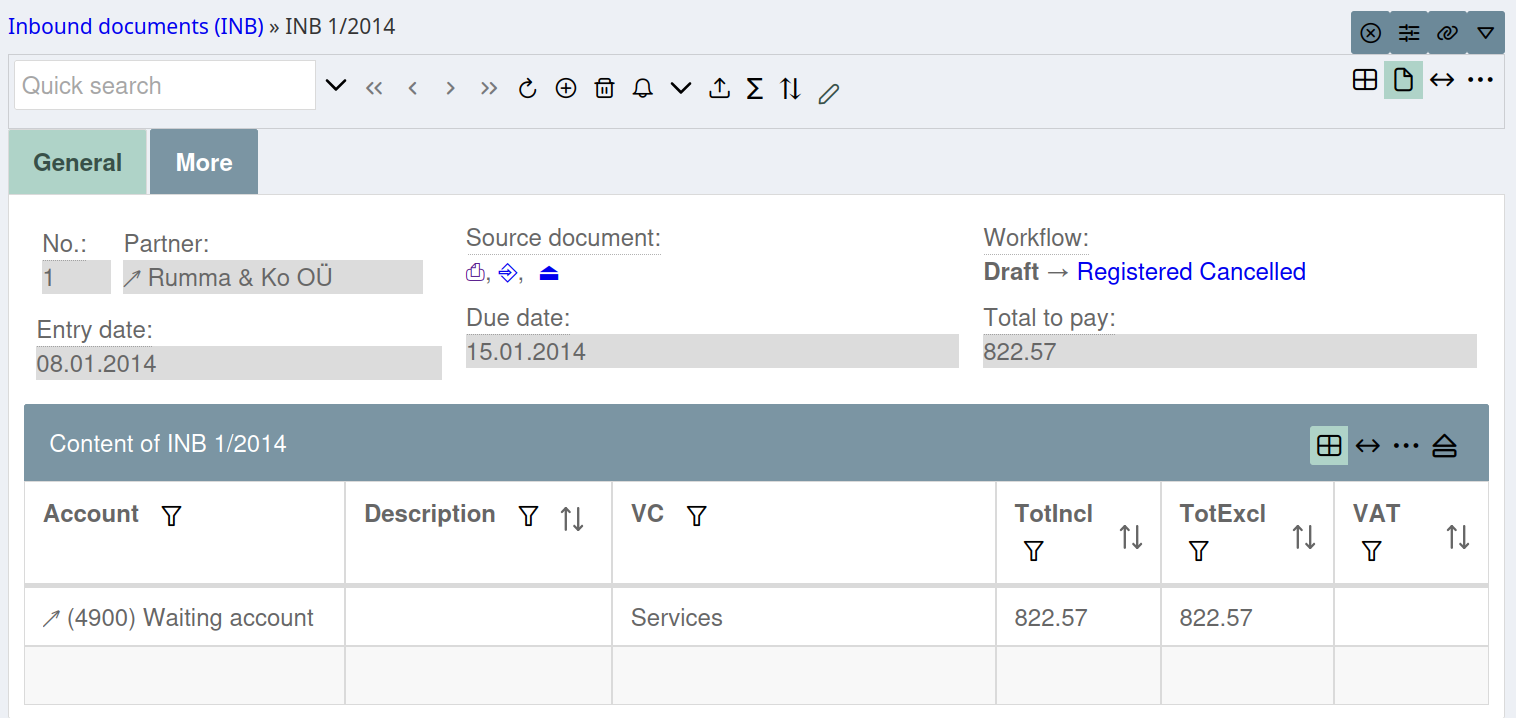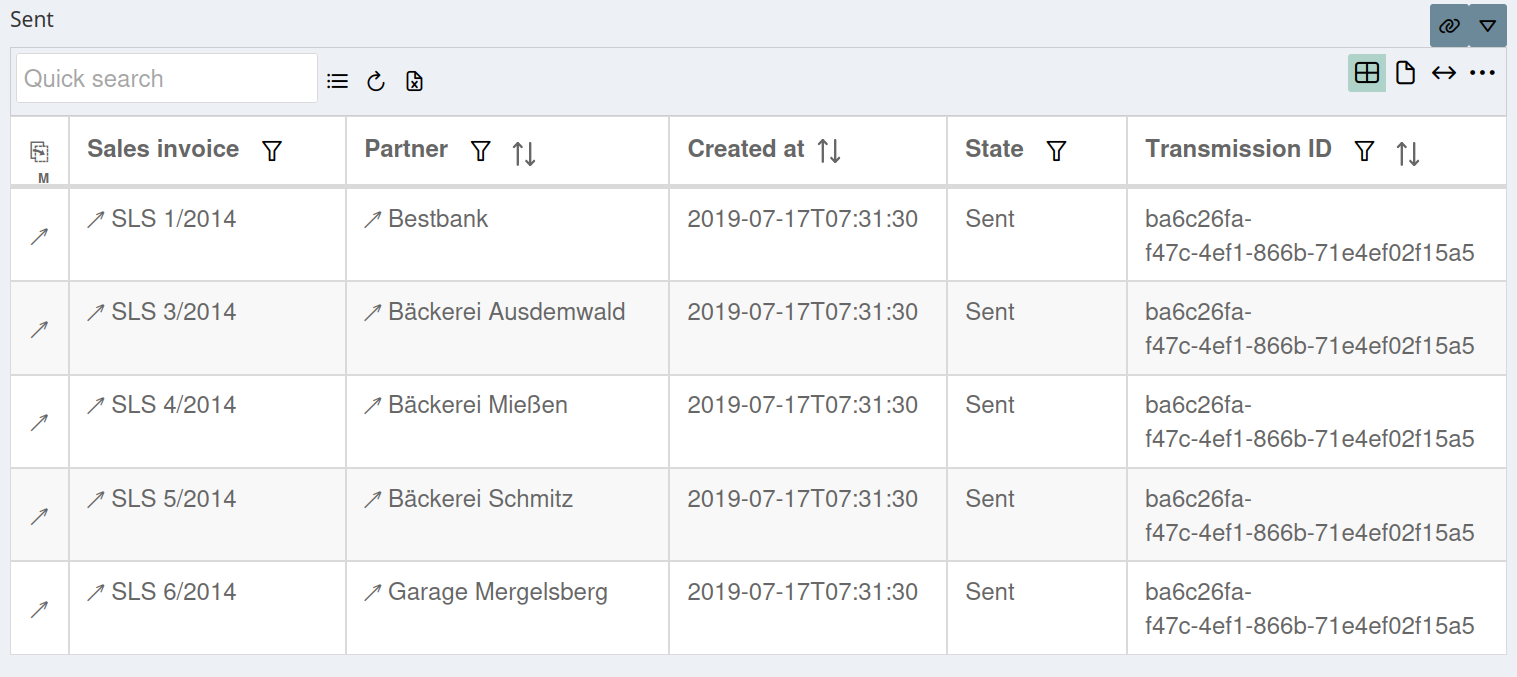Basics | Applications | Howtos | Plugins
The peppol plugin¶
The peppol plugin adds features for sending and receiving your invoices via
the Peppol network.
The screenshots in this document are taken from a Lino Così demo site
with the peppol plugin enabled.
Features¶
Send and receive invoices and credit notes via the Peppol network
Supports UBL BIS 3.0 format for both inbound and outbound documents.
End users can decide per customer whether to send invoices and credit notes via Peppol or not.
End users can manually review every received document before registering it into the accounting ledger.
User interface¶
The peppol plugin adds the following user interface elements to your Lino site:
a quick link to the Check Peppol task.
four data windows: Inbox, Outbox, Sent and Archive
Two fields “Send via Peppol” and “Peppol ID” in the detail view of a business partner.
As a site manager you have a menu entry where you can configure the Check Peppol action to run automatically as a background task
In the dashboard you can see the Check Peppol quick link and a welcome message “You have 1 items in Inbox”.

Master data¶
This plugin adds two fields “Send via Peppol” and “Peppol ID” in the detail view of a business partner.


Check Peppol¶
When you click on the Check Peppol quick link, Lino opens the detail window of the Check Peppol background task.
Click on the ▶ button to launch the task.

Inbox¶

If you want to see technical information about the transmission of this document via the Peppol network, click on the ↗ in the first column to open the detail view for this document.

Click on the ↗ in the “Invoice” column to open the detail view for the invoice or credit note that Lino has generated for this document.

The Source document field shows files that were embedded in the electronic invoice. Most often this is a PDF version of the invoice provided by the sender. Click on the ⎙ button to see the pdf document.
The ⎆ button shows metadata about the pdf document. The ⏏ button opens all embedded files that are attached of this invoice, this might include service reports, contracts, pictures, or any other media files.
The Workflow field shows the status of your document. A freshly received document is in state “Draft”.
Before registering the document into your ledger, you may manually review its content. For example you may want to change the account, or distribute the total amount over multiple lines with different accounts. If Lino sets “(4900) Waiting account”, you might want to click on the ↗ in front of the partner name in order to set their field “Purchase account”.
Click on “Registered” in the Workflow field to register the invoice into your ledger. The “Cancelled” state is used only in special situations. If this is the last document of the journal, you may also delete it by clicking on the
 button in the toolbar.
button in the toolbar.
When you have registered an inbound invoice, Lino moves the Peppol document from Inbox to Archive
Archive¶
The Archive table contains inbound Peppol documents that have been registered into your accounting ledger.
Outbox¶
The outbox contains invoices and credit notes that are about to be sent to the Peppol network.
Outbound documents stay usually only for a short time in the outbox because they move to the Sent table as soon as they have been delivered. Only in case of transmission problems they remain in the outbox so you can consult with the recipient.
Sent¶
The Sent table shows invoices and credit notes that have been sent to the Peppol network.

Pitfalls¶
“In the Check Peppol window I click on the ▶ button but the task doesn’t seem to start.”
Click the refresh button
Check whether the
linoddaemon is running on your server.